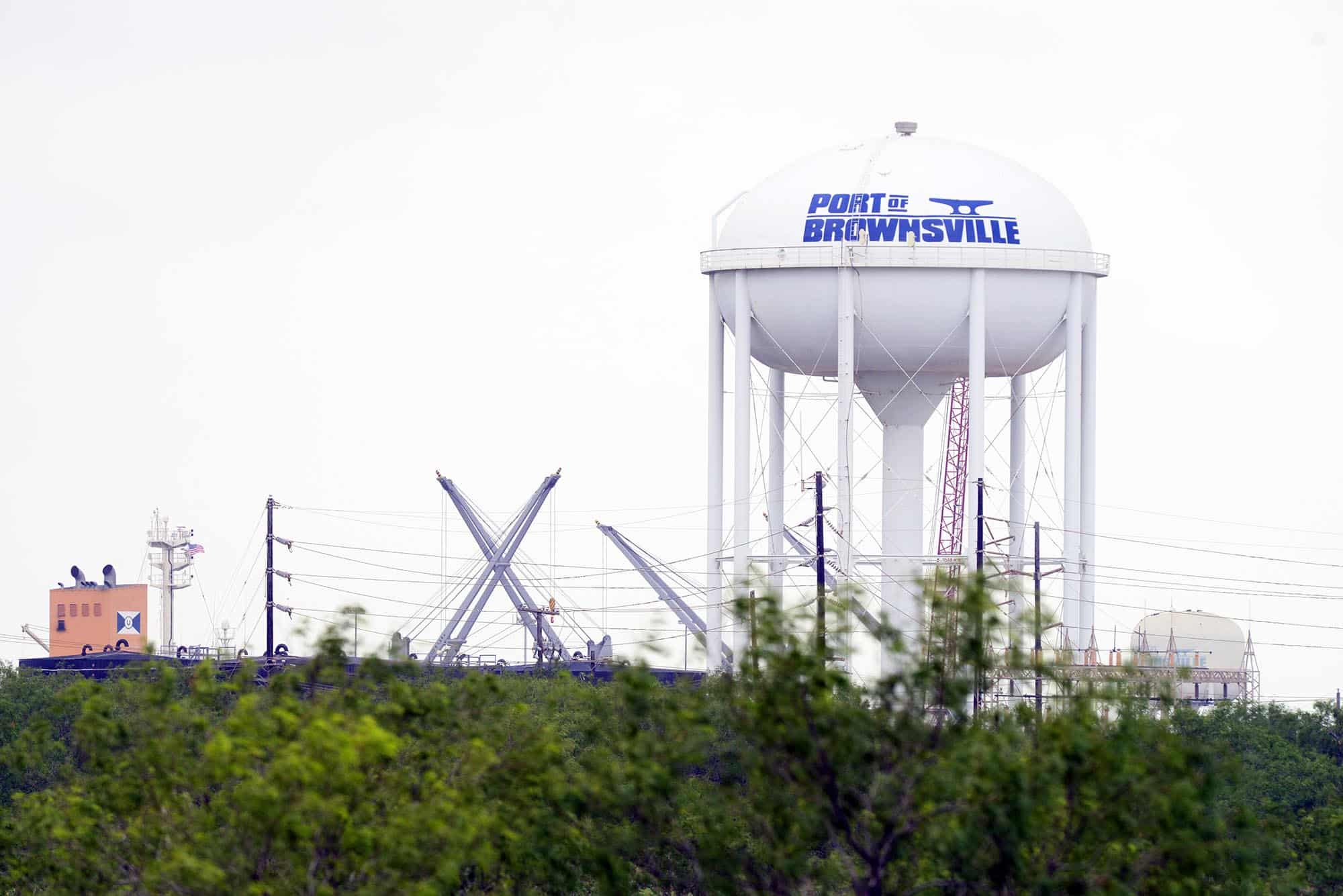|
Only have a minute? Listen instead
Getting your Trinity Audio player ready...
|

The Port of Brownsville’s Foreign-Trade Zone, FTZ No. 62, broke another cargo record in 2022, according to the U.S. FTZ Board’s 2022 report to Congress published Aug. 22.
A total of $13.9 billion worth of imports and exports moved through the port last year, up from $9.7 billion recorded by the FTZ Board for 2021. Brownsville’s port also maintained its spot as the second highest ranking FTZ in the United States in terms of exported commodities — more than $8.2 billion for 2022 compared to $5.2 billion in 2021, reflecting a continuing “upward trajectory” in exports, according to the port.
The port was ranked 20th in the nation for imports, with $5.7 billion in imported commodities moving through the port in 2022, the FTZ board reported. Overall, FTZ No. 62 has been ranked among the top FTZ among 193 across the country since 2012.
FTZs are specially designated sites near U.S. ports of entry within which importers and exporters are allowed to move goods in and out of the country without having to pay normal customs duties, taxes and fees. The zones are intended to help U.S. companies stay globally competitive by considering them outside customs territory of the United States as far as duties are concerned.
Port Director and CEO Eduardo Campirano said the port’s FTZ “serves as a crucial connection for manufacturers, suppliers and retailers, leading the charge in international trade for the region.”
“We take great pride in fostering a thriving business hub within the (port), one that creates opportunities for both our workforce and community as the port continues to expand,” he said.
FTZ No. 62 spans Cameron County and includes facilities at the port, Brownsville South Padre Island International Airport, Valley International Airport, Harlingen Industrial Park and Airpark, NAFTA Industrial Park, and FINSA Industrial Park at Los Indios.
More than 100 businesses operate within the FTZ. The top five commodities moving through it are petroleum products, primarily gasoline and diesel fuel, and others include machinery and equipment, iron, steel and other metals, minerals, textiles and other materials. Mexico, Brazil, South Korea, Qatar and South Africa are among the FTZ’s top trading countries.
Tony Rodriguez, the port’s director of cargo services and FTZ administrator, said businesses within the zone enjoy streamlined customs procedures because of the way FTZs are set up.
“Our logistical advantages allow companies to compete more effectively in the global marketplace and expand their international operations,” he said.
Brownsville’s port is the only deep-water seaport directly on the U.S.-Mexico border and handles more steel bound for Mexico than any other U.S. port. At 40,000 acres, it is the largest land-owning public port authority in the country.



